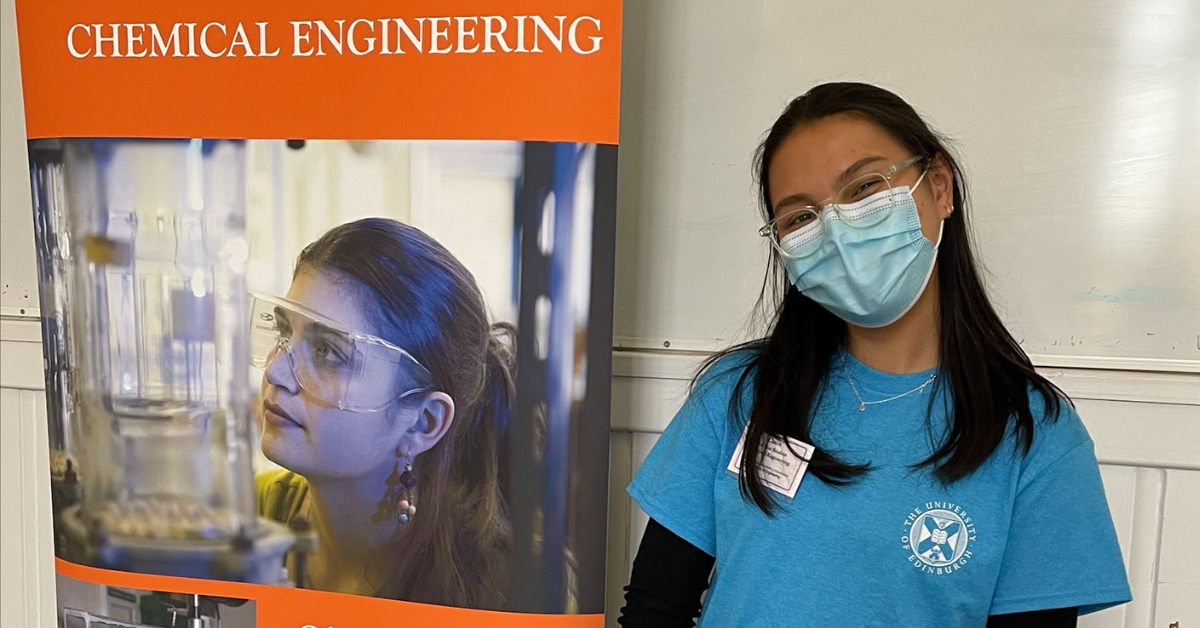Debunking the myths about chemical engineering

By Claire, fourth year, BEng (Hons) Chemical Engineering
Before entering university, my thoughts on chemical engineering were very much on the surface level. I knew that it involved a substantial amount of chemistry but that was about it. The saying goes, you don’t really know something until you’ve tried it out and after four years, I believe I know better now than I did before.
I’m sure there are many who are in the position I was in before, so to pay it forward, I’ll highlight some of the main ‘myths’ surrounding chemical engineering and attempt to debunk them!
Myth 1: Chemical engineering is only about chemistry
This is probably the most common myth. Chemical engineering looks at the design, operation and optimization of large-scale processes to produce valuable products from raw materials. Chemistry does play an important role but physics and mathematics are equally as important.
For example, chemistry helps to understand the characteristics of the material, but physics and mathematics help to study the movement of the material in different phases such as solid, liquid and gas.
To visualise it better, take the example of drug development. Chemists are responsible for creating the drug based on the chemical properties and bioactivity of the compound, while chemical engineers take this formula and scale up this process to an industrial level while ensuring that the effectiveness of the drug is not compromised.
Myth 2: Chemical engineering is only relevant in the oil and gas sector
Chemical engineers have always been associated with the oil and gas sector, and almost every chemical engineering undergraduate has done some sort of project on designing distillation columns (I know I have!)
However, chemical engineers are also very important in the pharmaceutical and biochemical sectors, including producing vaccines and designing wastewater treatment systems. Process engineers typically come from a chemical engineering background, and they look after the industrial processes by making sure that they operate at the right conditions.
A lot of chemical engineers are also at the forefront in the race to reach net zero by 2050, by developing methods for harnessing clean energy. Some chemical engineers have also entered academia after being in the industry as educators and conducting their own research in a specific area of study.
Fun fact: The co-founder of Moderna (one of the first producers of a Covid-19 vaccine) Robert Langer is a chemical engineer!
Myth 3: Chemical engineering is only about the science of things
This is probably one of the lesser-known myths, but chemical engineering also includes a good understanding of economics, such as estimations of capital costs and production costs to assess the viability of a new plant being built.
There is also a management aspect which applies to other engineering disciplines as well, which is called project management and investigates the proper planning of a project to avoid delays and going over budget.
Process safety, which looks at assessing the hazards and risks of the process being carried out and ensuring there are mitigating actions in place, is also an important area of study for chemical engineers – particularly considering the potentially hazardous nature of the materials and working conditions such as being offshore.
Overall, chemical engineers often have a broad set of skills and knowledge. There are possibly many more myths surrounding chemical engineering but debunking these three myths has hopefully provided you with a better overview on what chemical engineering is and piqued your interest in learning more!




Comments are closed
Comments to this thread have been closed by the post author or by an administrator.